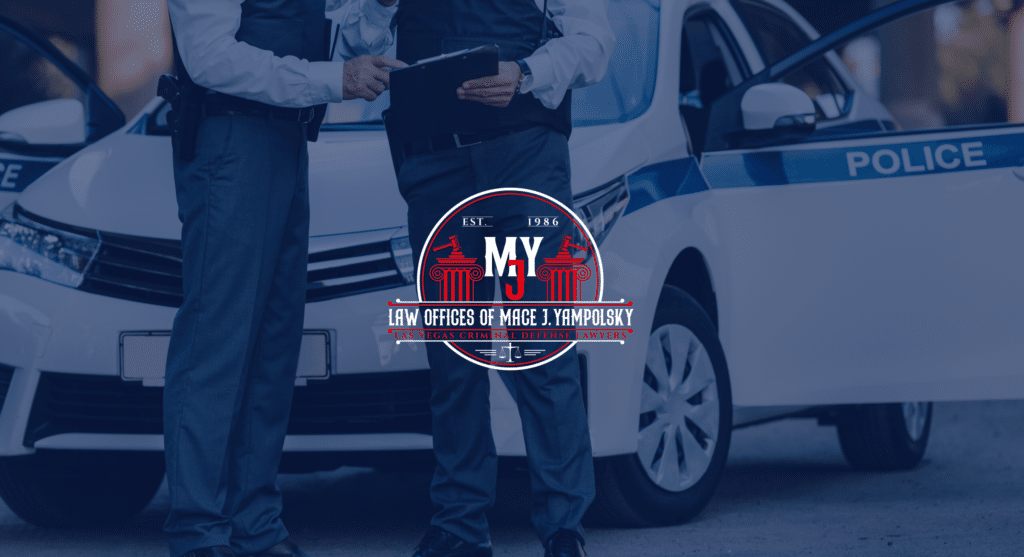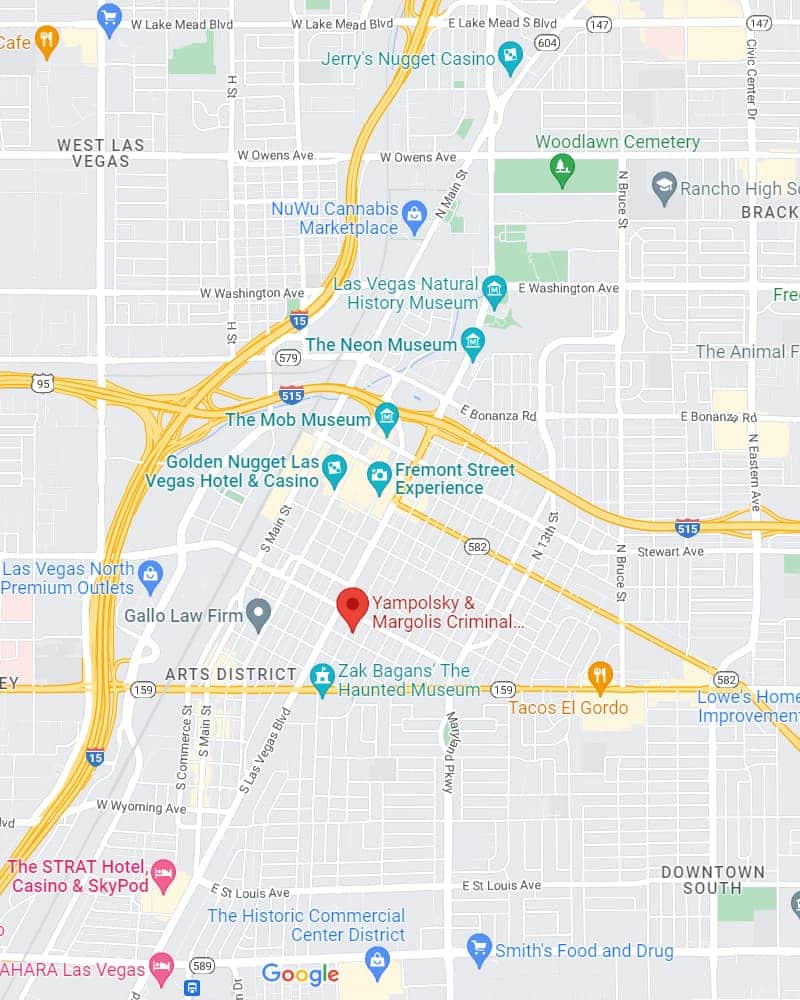A probation revocation hearing is different from a criminal trial in several ways. Simply put- a probation revocation hearing occurs when you are charged with violating the terms of your probation and are ordered to appear before a judge who will decide, by a preponderance of the evidence, whether you have violated the terms of your probation.
To get a better understanding of what happens during a probation revocation hearing, let’s break down each of those components.
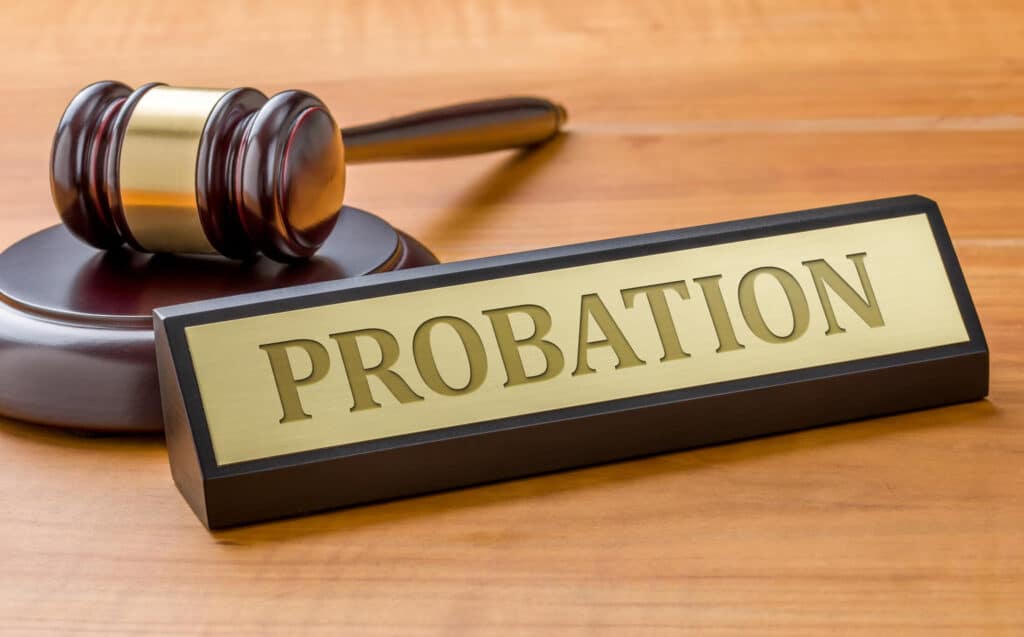
Understanding Probation Revocation
Understanding what happens when someone breaks the probation rules is important because it shows what can happen if they don’t follow the court’s orders. If a person on probation doesn’t do what they’re supposed to, like going to meetings or staying away from drugs, it can start a probation violation process. These rules help them get back on track and stay out of trouble. But if they don’t follow them, they can get in more trouble with the law. That’s why it’s essential to follow all probation rules carefully to avoid going to jail or facing other consequences.
Violating Probation Terms
As you are probably aware, your probation is subject to conditions you must adhere to. These conditions often include:
- Follow all local, state, and federal laws.
- Do not use any controlled substances, except with medical prescription.
- Submit to testing for use of controlled substances.
- Submit to breathalyzer tests.
- Consent to searches of your premises, vehicle, and personal property.
- Do not change jobs or place of residence without informing your probation officer.
- Do not travel outside the state without permission from your probation officer.
- Do not possess any firearms.
- Obey any and all special conditions of your probation.
Hearing Before a Judge
Unlike a criminal trial, which involves a jury making findings of fact, a probation revocation hearing is before a judge. The judge will hear arguments from both sides and render a decision.
Burden of Proof
In a probation revocation hearing, the prosecutor does not need to prove to the judge that you violated the terms of your probation “beyond a reasonable doubt.” The prosecutor need only prove that you violated the terms of your probation “by a preponderance of the evidence.” This is a lower burden of proof, which means it’s an easier job for the prosecution than the burden they normally have during a criminal trial to prove each and every element of a crime beyond a reasonable doubt.
“By a preponderance of the evidence” basically means that one side is more likely true than not. Therefore, if the prosecution can persuade the judge that there is a 51% likelihood that you violated the terms of your probation, they will be successful.
Outcome of the Hearing
If the judge finds that you violated the terms of your probation, the judge may impose stricter limitations on your probation or revoke your probation, which might result in imprisonment.
If the judge finds that you did not violate the terms of your probation, the current length and terms of your probation will continue.
As mentioned, the prosecution has a lower burden of proof in a probation revocation hearing than in a criminal trial, therefore, being represented by an experienced criminal defense attorney during a probation revocation hearing is crucial to protect your rights and freedom.
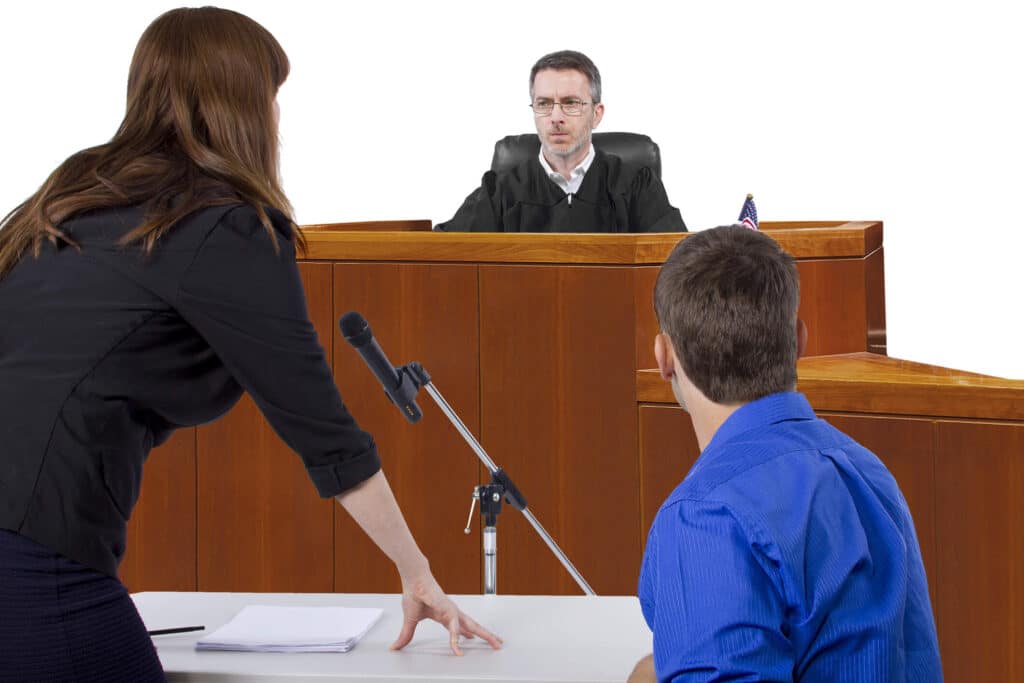
Probation Revocation Hearing Process
The probation revocation hearing process involves several key steps that determine the outcome for individuals accused of violating their probation terms:
1. Issuance of a Warrant or Summons
When a probation officer or prosecutor suspects a probation violation, they can ask a judge to issue either a warrant for the person’s arrest or a summons requiring them to appear in court for a probation revocation hearing. This step initiates the legal process and notifies the individual of the allegations against them, ensuring their presence in court to address the accusations and defend their rights.
2. Notification to the Defendant
Notifying the defendant is critical in the probation revocation process, ensuring they know the allegations against them and the upcoming revocation hearing. This notification includes details such as the date, time, and location of the probation violation hearing, allowing the defendant to prepare their defense. Importantly, defendants have the right to legal representation during this process, enabling them to seek guidance from an attorney to navigate the complexities of the legal proceedings and advocate for their rights effectively. This notification ensures fairness and transparency in the legal process, allowing defendants to participate fully in their defense.
3. Presentation of Evidence
During the probation revocation hearing, the prosecutor plays a crucial role in presenting evidence that backs the claim of a probation violation. This evidence encompasses various forms, including witness testimony, official documents like police reports or drug test results, and any other pertinent information. Witness testimonies provide firsthand accounts of the alleged violation, while official documents serve as concrete evidence to support the prosecution’s case. This comprehensive presentation of evidence aims to substantiate the allegations and provide the judge with a clear understanding of the circumstances surrounding the probation violation.
4. Defense Response
During the defense response phase of the probation revocation hearing, the defendant or their attorney is given the chance to counter the accusations brought forward by the prosecution. This involves presenting evidence or arguments that challenge the validity of the prosecution’s evidence. Additionally, they can offer mitigating circumstances to provide context for the alleged violation, aiming to reduce its severity or explain the reasons behind the actions in question. This crucial step allows the defendants to advocate for themselves and strive for a fair outcome.
5. Decision by the Judge
Once all evidence and arguments have been heard, the judge must make a crucial decision regarding the alleged probation violation. If the judge concludes that the defendant has indeed violated their probation terms, they proceed to determine the suitable consequences. These consequences may vary widely, from extending the probation duration to adding further conditions or revoking probation entirely. The judge’s decision hinges on the case’s specifics and aims to maintain accountability while promoting rehabilitation within the criminal justice system.
6. Sentencing Phase (if applicable)
During the sentencing phase, if probation is revoked, the judge determines the appropriate penalties for the defendant. This decision hinges on the seriousness and type of violation committed. Possible consequences include incarceration, monetary fines, or other sanctions outlined by legal statutes. The severity of the violation plays a crucial role in shaping the outcome of this phase, reflecting the judge’s discretion within the bounds of the law.
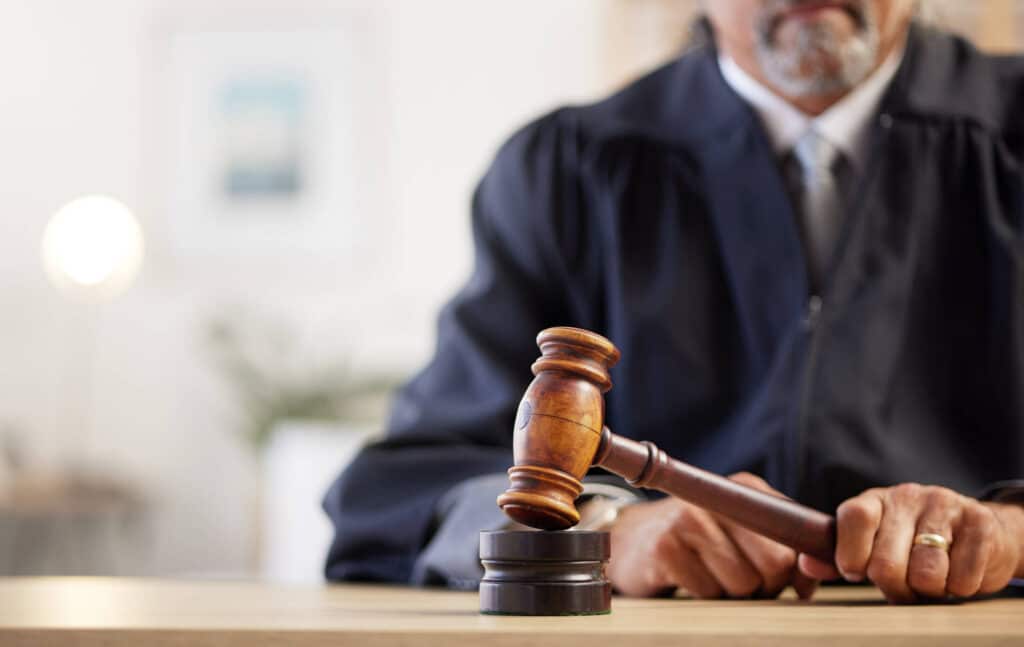
Importance of Probation Revocation Hearings
Probation revocation hearings hold significant importance within the criminal justice system for various reasons:
1. Ensuring Due Process – These hearings uphold the fundamental principle of due process by providing individuals on probation with the opportunity for a fair and impartial hearing before any additional penalties are imposed. This ensures that their rights are protected and that decisions regarding their probation status are made in accordance with the law.
2. Facilitating Individualized Justice – Judges presiding over probation revocation hearings have the discretion to consider each case’s unique circumstances. This allows them to consider factors such as the individual’s background, compliance with probation terms, and any mitigating circumstances that may have contributed to the alleged violation. As a result, decisions regarding probation revocation and sentencing can be tailored to fit the specific needs and circumstances of the individual involved.
3. Promoting Compliance with Probation Terms – The prospect of facing consequences for probation violations is a powerful incentive for individuals to adhere to the terms of their supervision. By making it clear that non-compliance can result in revocation of probation and potentially harsher penalties, these hearings encourage individuals on probation to take their obligations seriously and comply with the court’s conditions.
Probation revocation hearings are critical. They help keep the probation system fair and ensure everyone follows Nevada rules of criminal procedure. These hearings give people on probation a chance to explain their side of the story and show evidence. They help ensure that decisions about probation are fair and follow the law. Plus, they help people on probation stay accountable for their actions. By giving everyone a fair chance to speak and be heard, these hearings help make sure probation helps people get back on track and become part of society again after being in trouble with the law.
Conclusion
Probation revocation hearings are crucial for keeping the probation system fair and ensuring people follow the rules. They allow evidence and arguments to be heard fairly, following the law. These hearings help to make sure everyone’s rights are respected and that public safety is taken seriously. Knowing how probation revocation works helps us see how the legal system works and why it’s essential to stick to the rules of probation to avoid more trouble with the law.
FAQs
Here are some frequently asked questions about what happens during a probation revocation hearing:
Q. What evidence is considered during a probation revocation hearing?
During a probation revocation hearing, various types of evidence are considered. This evidence typically includes witness testimony, such as statements from probation officers or other witnesses to the alleged violation. Police reports, drug test results, and any other relevant records may be presented as evidence. The judge evaluates this evidence to determine whether the probationer has violated the terms of their probation and what consequences, if any, are appropriate.
Q. What rights does the defendant have during a probation revocation hearing?
During a probation revocation hearing, the defendant has several rights. These include the right to be informed of the alleged violation, the right to legal representation, the right to present evidence and arguments in their defense, and the right to a fair and impartial decision by the judge. These rights ensure that the defendant can contest the allegations and receive due process throughout the proceedings.
Schedule an Appointment With the Law Offices of Mace J. Yampolsky Today!
At the Law Offices of Mace J. Yampolsky, our team specializes in guiding clients through the intricacies of probation revocation hearings. If you’re seeking clarity on the process or require representation, our experienced criminal justice attorneys in Las Vegas, Nevada, are here to assist you.
With our expertise and dedication, we can provide invaluable insights and support to navigate the challenges of probation revocation proceedings. Whether you need assistance in understanding your rights, preparing for your sentence review, navigating the procedure of the hearing, or exploring options for appeal, we are committed to safeguarding your interests and achieving a favorable outcome.
Contact us today to schedule a consultation and take the first step towards protecting your rights and securing justice!





